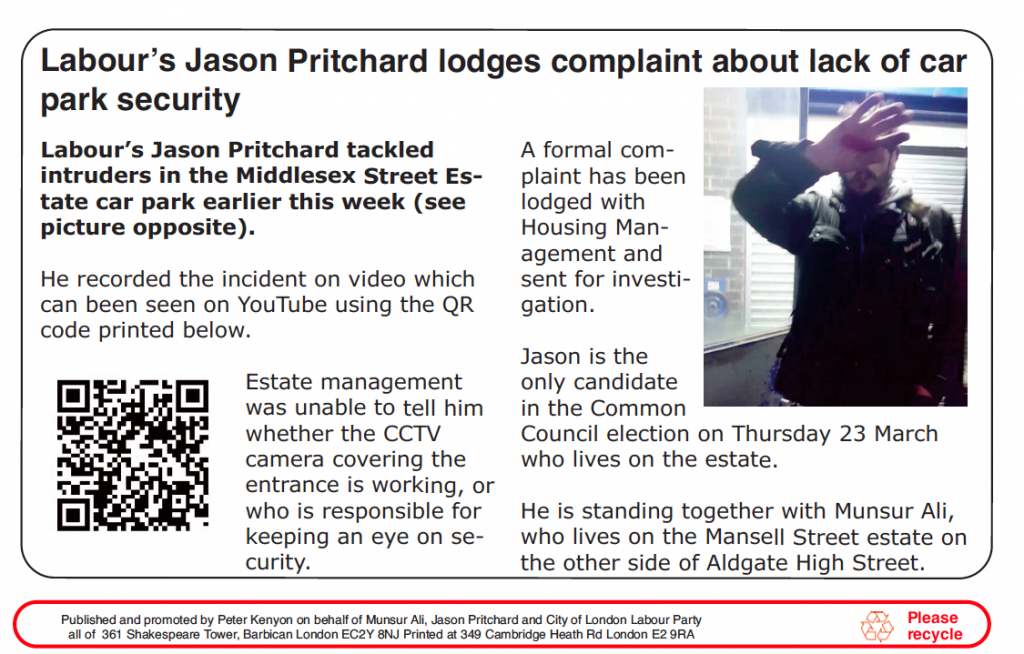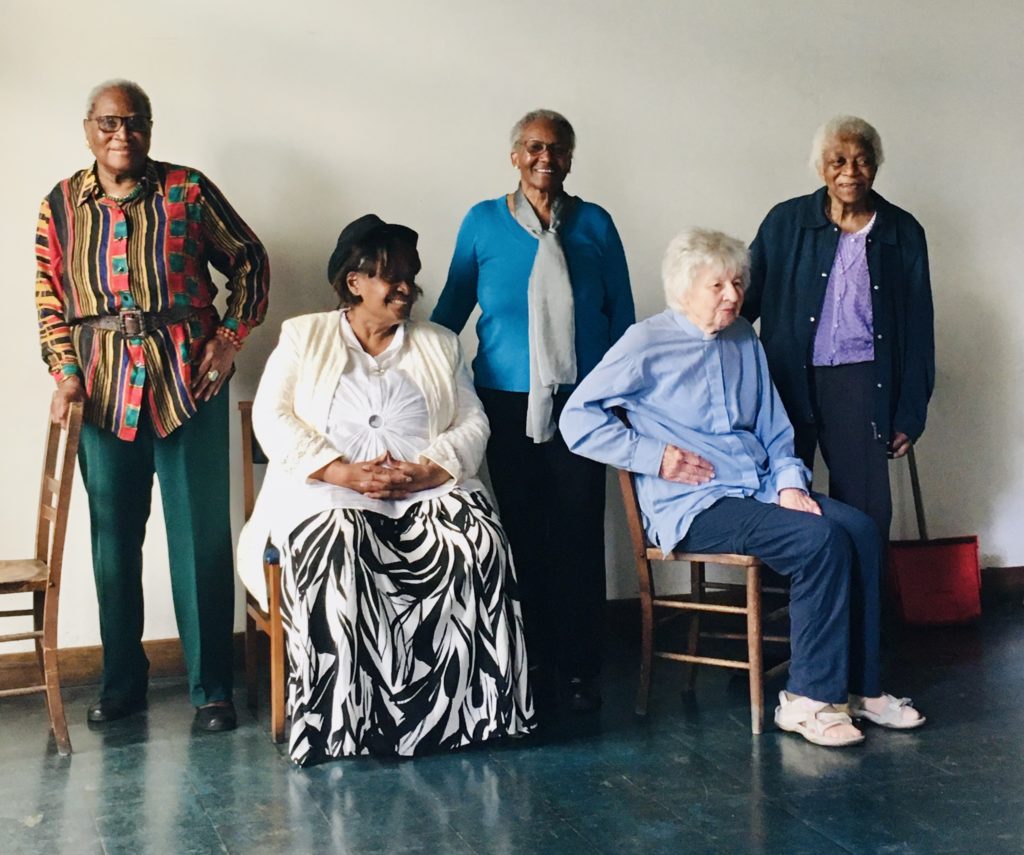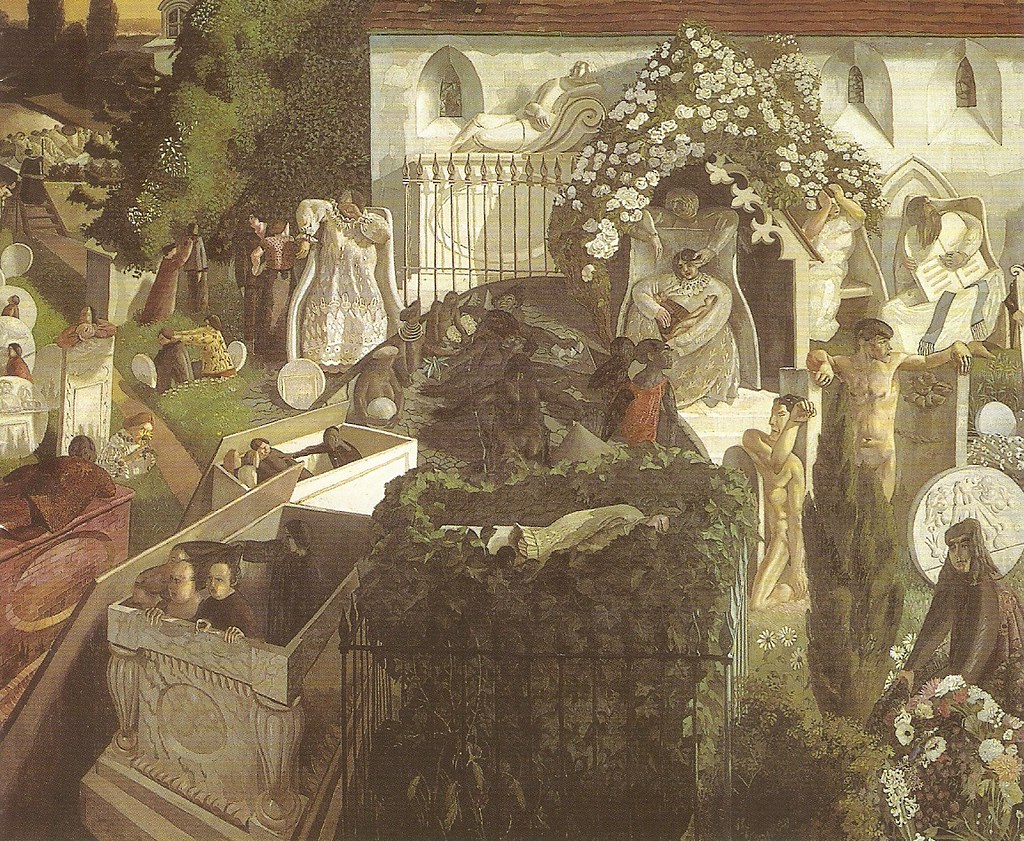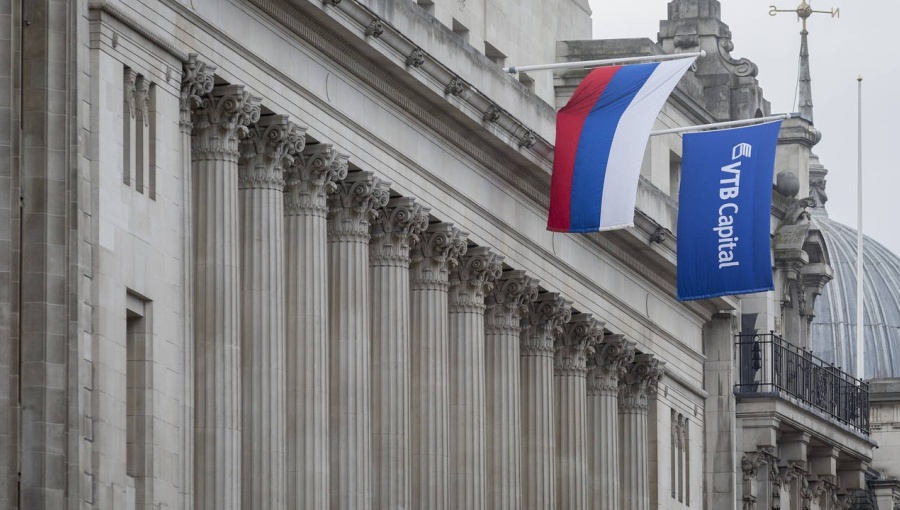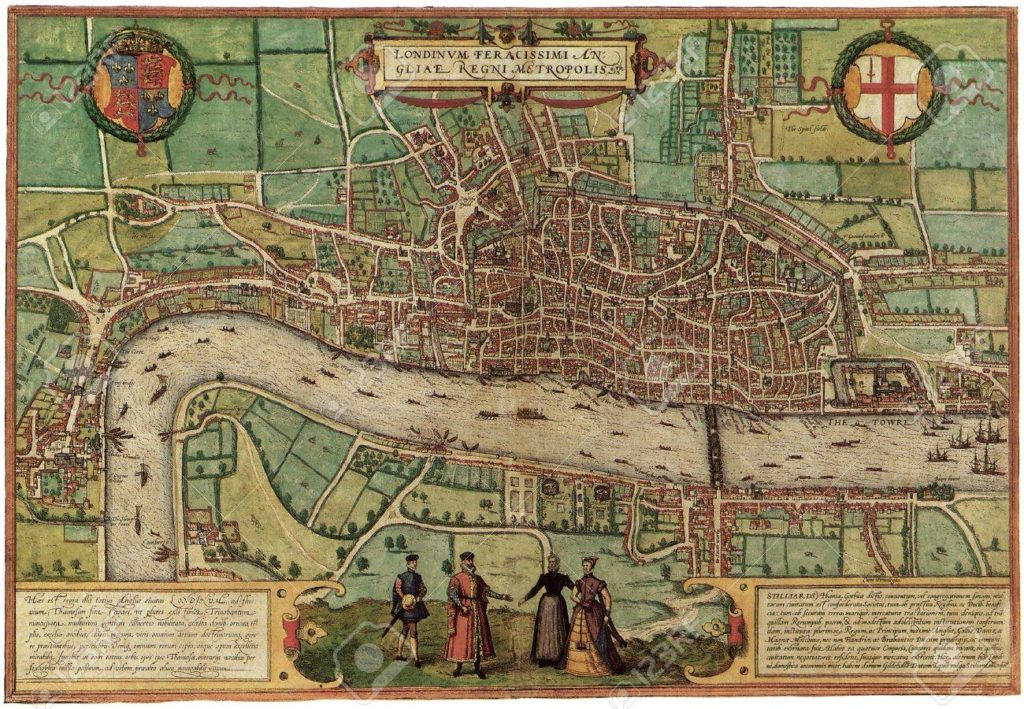Poor Door in the City of London
 Recently I received a turd through the post. It was a photograph of a pile of faeces at the entrance to a housing estate and it was emailed to me because I was a councillor for the estate in question. I wasn’t sure what I could usefully do so I forwarded it (with attachments) to the estate manager and used words like “totally unacceptable”.
Recently I received a turd through the post. It was a photograph of a pile of faeces at the entrance to a housing estate and it was emailed to me because I was a councillor for the estate in question. I wasn’t sure what I could usefully do so I forwarded it (with attachments) to the estate manager and used words like “totally unacceptable”.
All in all it rather put me off my lunch.
Today I step down in the City of London, as the Square Mile goes to the polls. It will be someone else’s privilege to field this kind of communication.
But for now I want to make a modest proposal.
I’m reliably informed that this was human rather than canine matter (on account of a witness) and I think we can assume that it was not a piece of performance art or political protest but rather a rough sleeper with mental health problems.
The City of London may still be “the world’s foremost financial and business centre” and the Corporation may yet legitimately claim to represent an industry that continues to contribute roughly 12% of the country’s overall economic output, but still there are homeless people living rough in the Square Mile as well as residents who have to navigate the associated challenges.
This is not an isolated incident. In the last few weeks I have also seen footage shot on a phone of a couple of young men being shooed away from the estate’s car park entrance, having broken in. The door into the estate was smashed and the entrance lobby was left covered with the debris of syringes and needles.
Quite understandably residents are upset. They feel that Portsoken, on its eastern fringe, is the City’s poor door.
You don’t have to come from the North of England to feel that you are living in a corner of the country that has been left behind by London’s success. Some of those living amongst the towers of finance themselves feel the same thing.
Mind you this would never happen in the Barbican, on the wealthier side of the City. Whenever I have had cause to visit someone in one of their tower blocks I have been greeted by a fleet of concierges in smart uniforms hiding behind reception desks ornamented with potted plants. Typically they want to know who I am and what I am doing there.
If you also have cause to park your auto in one of their car parks there will be a further interrogation by men peering at banks of CCTV footage. It’s the security guys who really know what’s going on in the City.
I know that because I have made a point of speaking to the guards at the offices in my ward. A few have been there for years. They tell me who the bosses are and what cars they drive. I’m sure they know who’s sleeping with whom but would be too discreet to say. I can guarantee you one thing, however: there’s no poo-ing in public on their watch.
Over the last few years in my ward there have been some attempts to bring together its constituent communities. Office workers have started helping with literacy in the local school and a private members’ club is funding a food hygiene course for Bengali women on one of our housing estates.
A number of firms support Foodbank at Christmas and there are plans for a “community play” next year to mark the opening of a new public square. There is also talk of setting up a Living Wage Zone through a local business partnership.
But here’s my thought: what if the high rolling fund-managers and insurance brokers pooled together and coughed up for an extra security guard to keep their neighbours’ housing block free of junkies at night and defecators during the day?
In the City money moves swiftly through the digital universe, untethered and often untaxed, but it moves slowly through the physical world. It is here that the building of relationships within stable networks of civil society takes time and effort. For the long-term consolidation of the financial services within our economy this kind of solidarity is surely necessary.
On stepping down my hope for Portsoken – and for London – is that there’s more reciprocity between the cyber economy and the physical economy, between the financial services and the rest of us – more “trickle up” and more “trickle down”.
And I’m not just talking about what the revellers do on a Friday night up against the wall of the estate.
